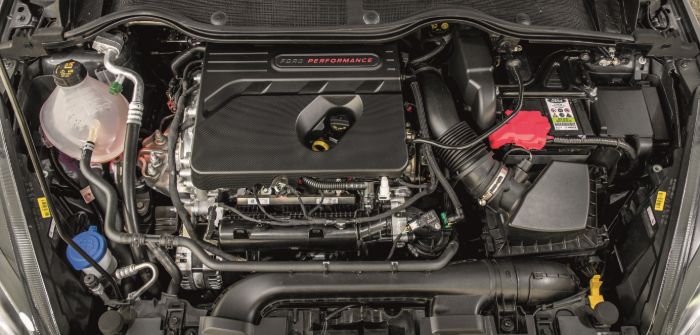How to Diagnose Ford Fiesta Engine Issues and Prevent Future Problems
Opening the Power of Engines: A Comprehensive Guide to Efficiency and Effectiveness
Comprehending the elaborate auto mechanics of engines is essential for both performance enthusiasts and daily chauffeurs. The responses may redefine our strategy to engine efficiency and efficiency in ways that are both enlightening and essential.
Understanding Engine Essentials
What makes up the basic technicians of an engine? At its core, an engine is a machine designed to convert gas into mechanical power with a series of regulated surges or burning processes.
The crankshaft after that changes this direct activity into rotational energy, which inevitably powers the car. The camshaft controls the opening and closing of the shutoffs, regulating the intake of air and fuel and the expulsion of exhaust gases. Furthermore, the engine relies upon a carefully calibrated fuel-air combination, ignition system, and cooling system to ensure optimal efficiency and performance.
Comprehending engine essentials also entails acknowledging the relevance of engine cycles, such as the four-stroke cycle, which includes intake, power, exhaust, and compression strokes. Each stage is critical in guaranteeing the engine functions efficiently and properly. Proficiency of these essential technicians prepares for checking out a lot more intricate engine characteristics and efficiency metrics, crucial for enhancing both power result and efficiency.
Trick Performance Metrics
Trick performance metrics are necessary for examining an engine's performance and power output, offering beneficial insights for both consumers and manufacturers. These metrics act as criteria for engine performance, permitting educated decisions in design, manufacturing, and purchasing.
Among the key metrics is horsepower, which quantifies the engine's ability to carry out work over time. Torque, determined in pound-feet, is one more critical statistics that suggests the engine's rotational force, directly influencing velocity and towing ability. Fuel effectiveness, generally gauged in miles per gallon (MPG) or litres per 100 kilometers (L/100km), evaluates how effectively the engine transforms fuel right into movement, impacting environmental considerations and functional expenses.
Additionally, thermal performance measures how well an engine transforms gas power into valuable job, exposing understandings right into energy losses largely through warm. Exhaust levels, consisting of CO2 and NOx, are also important, mirroring the engine's environmental effect and conformity with regulative criteria.

Tuning Techniques for Efficiency
Tuning techniques play a substantial role in improving engine efficiency by maximizing performance metrics determined in earlier discussions (ford fiesta engine). Various methods exist to fine-tune an engine, each contributing to boosted fuel economic climate and minimized exhausts
One reliable method is adjusting the air-fuel proportion, ensuring the engine operates within the optimal burning program. A leaner mix can improve gas performance, yet it has to be stabilized to avoid misfires or engine knock. In addition, reprogramming the engine administration system can recalibrate specifications such as ignition timing, which better enhances effectiveness while maintaining power result.
An additional crucial strategy entails customizing the intake and exhaust systems. Updating to high-performance visit air filters and exhaust headers can reduce back stress, facilitating much better air flow. This enables the engine to breathe even more openly, causing enhanced burning efficiency.
Additionally, the application of innovative tuning tools, like dyno screening, provides accurate information that enables targeted adjustments. Regularly keeping an eye on these performance metrics guarantees that tuning initiatives generate the wanted effectiveness end results. Jointly, these strategies not just strengthen engine performance however likewise add to long-term sustainability in engine procedures.
Maintenance for Ideal Performance
Routine engine upkeep is necessary for achieving optimal efficiency and longevity. A well-maintained engine not just operates successfully but additionally lessens the risk of costly repair work and breakdowns. Secret parts requiring normal focus consist of oil, filters, belts, and spark plugs.
Changing the engine oil at recommended periods is crucial, as oil lubes relocating parts and protects against overheating. Changing oil and air filters makes certain that contaminants do not hinder engine function. Overlooking these components can result in lowered efficiency and potential engine damages.
Additionally, evaluating and replacing worn belts and tubes is important to avoid abrupt failings. Timing belts, in particular, ought to be replaced according to the producer's timetable to prevent devastating engine damage.
Ignition system ought to additionally be examined and changed as necessary, given that they play an important function in ignition you can try here and gas performance.
Future Trends in Engine Innovation
Welcoming improvements in modern technology, the future of engine layout is poised to revolutionize performance and performance across various applications. Hybrid and totally electric powertrains are ending up being progressively mainstream, using reduced discharges and boosted gas efficiency.
Moreover, technologies in materials science are bring about lighter, more powerful parts that enhance engine efficiency while reducing energy usage. Advanced production techniques, such as 3D printing, permit the development of complex geometries that enhance air movement and thermal management, thus optimizing burning procedures.
Furthermore, the assimilation of fabricated knowledge and artificial intelligence is set to change engine diagnostics and performance tuning. These click this modern technologies can assess substantial quantities of data in genuine time, making it possible for predictive upkeep and tailored performance enhancements.
Conclusion
In conclusion, opening the power of engines requires a comprehensive understanding of their technicians and efficiency metrics. Executing efficient tuning techniques and adhering to normal maintenance methods considerably improve engine capabilities.
In addition, the engine relies on a meticulously calibrated fuel-air mix, ignition system, and cooling down system to make certain optimum performance and performance.
Comprehending engine basics also involves acknowledging the significance of engine cycles, such as the four-stroke cycle, which includes consumption, compression, power, and exhaust strokes. Proficiency of these basic auto mechanics lays the groundwork for exploring extra intricate engine dynamics and performance metrics, necessary for optimizing both power output and efficiency.

Accepting improvements in modern technology, the future of engine layout is poised to change efficiency and efficiency across various applications.